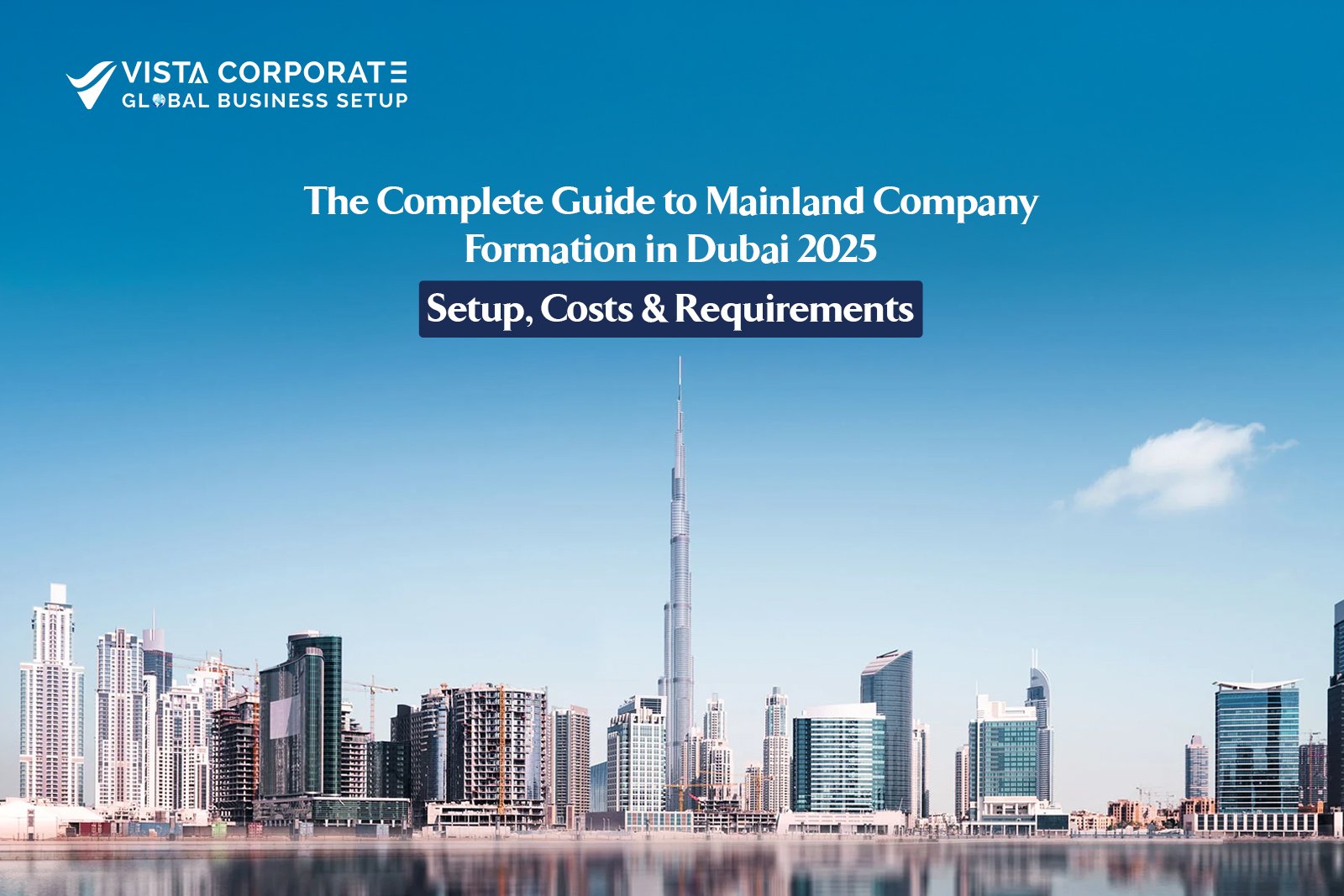
Opening a corporate bank account in Dubai represents a strategic milestone for businesses seeking to establish a strong financial presence in the UAE’s dynamic economy. This comprehensive guide provides international businesses with expert insights, current requirements, and proven strategies to successfully navigate Dubai’s banking landscape in 2025.
Benefits of Opening a Corporate Bank Account in Dubai
Strategic Business Advantages
Dubai’s banking sector offers compelling advantages for international corporations looking to expand their Middle Eastern operations:
Enhanced Business Credibility: A Dubai corporate bank account significantly elevates your company’s reputation when dealing with regional clients, suppliers, and partners. Local banking relationships demonstrate serious commitment to the UAE market and facilitate smoother business negotiations.
Streamlined Regional Transactions: Conducting business within the UAE and broader GCC region becomes substantially more efficient with a local banking presence. Domestic transfers process within minutes, while maintaining international accounts for similar transactions can take days and incur substantial fees.
Multi-Currency Banking Solutions: Dubai banks offer sophisticated multi-currency account management, enabling businesses to hold, transfer, and convert between major global currencies including USD, EUR, GBP, and regional currencies at competitive rates.
Access to Islamic Banking: For businesses seeking Sharia-compliant financial solutions, Dubai provides extensive Islamic banking options that align with religious principles while offering competitive commercial banking services.
Financial and Operational Benefits
Tax Optimization Opportunities: The UAE’s favorable tax environment, including zero personal income tax and limited corporate taxation, provides significant advantages for international businesses restructuring their operations.
Advanced Digital Banking Infrastructure: Dubai banks offer cutting-edge digital banking platforms with real-time reporting, automated reconciliation, and integrated ERP connectivity, enhancing operational efficiency for modern businesses.
Investment and Treasury Services: Corporate accounts provide access to sophisticated investment products, foreign exchange hedging, and treasury management services essential for managing international business cash flows.
Trade Finance Facilitation: Dubai’s position as a global trade hub means banks offer comprehensive trade finance solutions, including letters of credit, documentary collections, and supply chain financing.
Understanding Dubai’s Banking Landscape
Major Local Banks for Corporate Banking
Emirates NBD: The UAE’s largest banking group operates over 300 branches in Dubai alone, offering comprehensive corporate banking solutions. Minimum balance requirements range from AED 50,000 to AED 300,000 (Prices may vary, please consult with the provider) depending on your selected package. Emirates NBD provides dedicated relationship managers, competitive foreign exchange rates, and preferential pricing on investment products.
Abu Dhabi Commercial Bank (ADCB): Offers five distinct corporate account packages with minimum balance requirements from AED 25,000 to AED 1,000,000 *(Prices may vary, please consult with the provider). Features include multi-currency flexibility, preferential transaction pricing, internet banking, access to 50+ branches and 300+ ATMs, plus dedicated relationship management.
Mashreq Bank: Provides two primary business account options requiring minimum balances of AED 25,000 and AED 150,000 *(Prices may vary, please consult with the provider). Account benefits include discounted remittances, complimentary checkbooks, favorable foreign exchange rates, comprehensive online banking, Visa business debit cards, and preferential rates on business financing.
Dubai Islamic Bank (DIB): As the world’s first Islamic bank, DIB offers Sharia-compliant corporate banking solutions with competitive minimum balance requirements starting from AED 10,000 *(Prices may vary, please consult with the provider). Services include Islamic trade finance, Murabaha financing, and profit-sharing investment accounts.
First Abu Dhabi Bank (FAB): Formed through the merger of First Gulf Bank and National Bank of Abu Dhabi, FAB requires a minimum balance of AED 20,000 *(Prices may vary, please consult with the provider) with no monthly charges for companies maintaining banking facilities. Features include complimentary checkbooks, secure e-statements, SMS banking alerts, 24/7 mobile banking access, and unlimited teller transactions at nearest branches.
International Banks in Dubai
HSBC UAE: Offers comprehensive corporate banking solutions with global connectivity, making it ideal for multinational corporations. HSBC provides integrated cash management, trade finance, and foreign exchange services with seamless international banking integration.
Standard Chartered UAE: Specializes in corporate and institutional banking with strong focus on trade finance, cash management, and treasury services. Particularly strong for businesses with operations across Asia, Africa, and the Middle East.
Citibank UAE: Provides sophisticated corporate banking solutions including multi-country cash management, foreign exchange, securities services, and trade finance. Citibank’s global network offers advantages for companies with worldwide operations.
Barclays UAE: Offers comprehensive corporate banking services with emphasis on relationship management and customized financial solutions for medium to large enterprises.
Legal Framework for Corporate Banking
Company Formation Requirements
Before opening a corporate bank account, businesses must establish a legal presence in the UAE through one of several structures:
Mainland Company Formation: Requires UAE national partnership (51% local ownership) for most business activities, though recent amendments allow 100% foreign ownership in specific sectors including technology, manufacturing, and renewable energy.
Free Zone Establishment: Allows 100% foreign ownership within designated economic zones such as Dubai International Financial Centre (DIFC), Dubai Multi Commodities Centre (DMCC), or Jebel Ali Free Zone (JAFZA).
Branch Office Registration: Enables foreign companies to establish local presence while maintaining parent company legal identity, suitable for representative activities and specific business operations.
Representative Office Setup: Allows market research and liaison activities without engaging in commercial transactions, often used as a preliminary step before full establishment.
Document Authentication Process
The UAE does not participate in the Hague Convention, requiring extensive document authentication:
Consulate Certification: All corporate documents must first be certified at the UAE Consulate in the company’s country of incorporation. This process typically costs $200-500 per document *(Prices may vary, please consult with the provider) and takes 5-10 business days.
Ministry of Foreign Affairs Attestation: Following consulate certification, documents require attestation by the UAE Ministry of Foreign Affairs at approximately AED 2,000 per document *(Prices may vary, please consult with the provider). The entire authentication process often exceeds $3,000 *(Prices may vary, please consult with the provider) and requires 2-4 months completion time.
Comprehensive Document Requirements
Corporate Documentation
Essential Company Documents:
- Original Certificate of Incorporation with UAE consulate and MOFA attestation
- Memorandum and Articles of Association (fully authenticated)
- Certificate of Good Standing (not older than 6 months)
- Shareholders Registry with current ownership structure
- Board of Directors Resolution authorizing bank account opening
- Company Extract from official companies registry
- Audited Financial Statements (last 2-3 years)
- Business License and permits relevant to operations
Operational Documentation:
- Comprehensive Business Plan outlining UAE operations
- Cash Flow Projections for first 12-24 months
- Existing client contracts demonstrating business activity
- Supplier agreements and partnership letters
- Reference letters from current banking partners
- Insurance policies covering business operations
Personal Documentation for Signatories
Primary Requirements:
- Original passport with UAE entry stamps
- UAE residence visa (for resident signatories)
- Emirates ID (for UAE residents)
- Passport-size photographs (recent)
- Personal bank statements (last 6 months)
- Salary certificates or income proof
- No Objection Certificate from current employer (if applicable)
Enhanced Due Diligence Documents:
- Source of funds declaration with supporting evidence
- Criminal background check from country of origin
- Educational and professional qualifications certificates
- Previous business experience documentation
Step-by-Step Account Opening Process
Phase 1: Preparation and Research
Bank Selection Criteria:
- Evaluate minimum balance requirements against cash flow projections
- Compare fee structures for anticipated transaction volumes
- Assess digital banking capabilities and API integrations
- Review trade finance and international banking services
- Consider relationship manager availability and expertise
Documentation Preparation:
- Initiate document authentication process 3-4 months before intended opening
- Prepare all required corporate and personal documentation
- Ensure all documents are current and properly translated to Arabic if required
- Organize documents in order specified by chosen bank
Phase 2: Initial Application Submission
Application Process:
- Complete comprehensive account opening application form
- Submit all required documentation with certified copies
- Provide detailed business model explanation and UAE operational plans
- Submit initial deposit requirement confirmation
- Schedule preliminary review meeting with bank officials
Due Diligence Compliance:
- Participate in Know Your Customer (KYC) interviews
- Provide additional documentation as requested by compliance team
- Submit to background verification processes
- Clarify any questions regarding business operations or ownership structure
Phase 3: Approval and Account Activation
Final Approval Steps:
- Attend final account opening meeting with all authorized signatories
- Complete signature specimen cards and delegation of authority
- Receive account details and initial banking materials
- Set up digital banking access and security credentials
Account Activation:
- Transfer minimum balance requirement to activate account
- Receive debit cards, checkbooks, and other banking materials
- Configure online banking and mobile applications
- Establish any required standing instructions or automated services
Free Zone Banking Considerations
Specialized Free Zone Banking
Free zone companies often have streamlined banking processes due to pre-existing relationships between zone authorities and banks:
DIFC Banking: Dubai International Financial Centre companies can access specialized banking services from institutions like Emirates NBD DIFC Branch, HSBC Middle East, and Standard Chartered. DIFC companies benefit from common law jurisdiction and enhanced regulatory framework.
DMCC Banking: Dubai Multi Commodities Centre provides dedicated banking support through partnerships with major UAE banks, often offering preferential terms for commodities trading companies.
JAFZA Banking: Jebel Ali Free Zone companies can access banking services through multiple on-site bank branches, facilitating quicker account opening and ongoing relationship management.
Free Zone Banking Advantages
Simplified Documentation: Free zone companies typically require fewer attestations and authentications for banking purposes.
Enhanced Support: Zone authorities often provide banking facilitation services and direct introductions to preferred banking partners.
Competitive Terms: Banks may offer preferential pricing and terms for free zone companies due to established relationships with zone management.
Banking Costs and Fee Structures
Account Maintenance Costs
Monthly Maintenance Fees:
- Basic business accounts: AED 100-300 per month *(Prices may vary, please consult with the provider)
- Premium accounts: AED 500-1,000 per month *(Prices may vary, please consult with the provider)
- Private banking: AED 1,500-3,000 per month *(Prices may vary, please consult with the provider)
Transaction Fees:
- Local transfers: AED 5-25 per transaction *(Prices may vary, please consult with the provider)
- International transfers: AED 60-150 per transaction *(Prices may vary, please consult with the provider)
- Cash deposits: 0.1-0.25% of amount *(Prices may vary, please consult with the provider)
- Check processing: AED 10-30 per check *(Prices may vary, please consult with the provider)
Hidden Costs and Considerations
Foreign Exchange Margins: Banks typically apply 1-3% margin on foreign exchange transactions *(Prices may vary, please consult with the provider), significantly impacting international business costs.
Minimum Balance Penalties: Falling below minimum balance requirements can result in penalties of AED 200-500 per month *(Prices may vary, please consult with the provider).
Account Closure Fees: Early account closure may incur fees ranging from AED 500-2,000 *(Prices may vary, please consult with the provider).
Anti-Money Laundering Compliance
UAE AML Framework
The UAE implements comprehensive Anti-Money Laundering regulations under Federal Decree-Law No. 20 of 2018, as amended by Federal Decree-Law No. 26 of 2021:
Customer Due Diligence Requirements:
- Enhanced identity verification for all account holders and beneficial owners
- Source of funds documentation and verification
- Ongoing transaction monitoring and reporting
- Regular customer information updates and reviews
Reporting Obligations:
- Suspicious Transaction Reports (STRs) to Financial Intelligence Unit
- Cash Transaction Reports for amounts exceeding AED 40,000 *(Prices may vary, please consult with the provider)
- Cross-border transfer reporting for amounts exceeding AED 3,500 *(Prices may vary, please consult with the provider)
Compliance Best Practices
Documentation Maintenance:
- Maintain comprehensive records of all business transactions
- Keep updated beneficial ownership information
- Document source of all major fund deposits
- Regular compliance training for finance team members
Transaction Monitoring:
- Implement internal controls for unusual transaction detection
- Maintain transaction records for minimum 5 years
- Regular review of banking relationships and transaction patterns
Industry-Specific Banking Solutions
Technology and Innovation Companies
Specialized Services:
- API banking integration for fintech companies
- Cryptocurrency and digital asset banking solutions
- Venture capital and investor relations support
- International payment gateway integration
Compliance Considerations:
- Enhanced due diligence for blockchain and cryptocurrency businesses
- Regulatory approval requirements for financial services
- Data protection and cybersecurity compliance
Trading and Import/Export Businesses
Trade Finance Solutions:
- Letters of Credit (LC) issuance and confirmation
- Documentary Collections and Bills of Exchange
- Supply Chain Finance and Invoice Discounting
- Foreign Exchange Forward Contracts and Hedging
Operational Features:
- Multi-currency account management
- Trade documentation processing
- Customs and shipping integration
- Working capital financing facilities
Professional Services and Consultancy
Banking Requirements:
- Professional indemnity insurance compliance
- Client escrow account management
- International fee collection and transfer services
- Tax and audit preparation support
Digital Banking and Technology Integration
Advanced Digital Features
Mobile Banking Applications:
- Real-time transaction monitoring and alerts
- International transfer capabilities with competitive exchange rates
- Digital check deposits and account management
- Integrated expense management and categorization
Corporate Banking Portals:
- Multi-user access with role-based permissions
- Automated payment scheduling and bulk transfers
- Financial reporting and cash flow analysis tools
- API integration for ERP and accounting system connectivity
Security Features:
- Multi-factor authentication and biometric access
- Transaction encryption and fraud detection
- Real-time security alerts and monitoring
- Secure file sharing for document submission
Common Challenges and Solutions
Typical Banking Challenges
Documentation Complexity: The extensive documentation requirements often overwhelm first-time applicants. Solution: Engage experienced business setup consultants like Vistacorp (www.thevistacorp.com) to guide the process and ensure compliance.
Lengthy Approval Times: Bank approval processes can extend 6-12 weeks due to enhanced due diligence requirements. Solution: Begin the banking process immediately after company formation and maintain regular communication with bank relationship managers.
Minimum Balance Requirements: High minimum balance requirements can strain cash flow for smaller businesses. Solution: Compare multiple banks and negotiate terms based on expected transaction volumes and relationship depth.
Cultural and Language Barriers: Understanding local banking practices and communication preferences. Solution: Work with bilingual business consultants and relationship managers familiar with international client needs.
Risk Mitigation Strategies
Compliance Risk Management:
- Implement robust internal controls and documentation procedures
- Regular compliance training and updates on regulatory changes
- Maintain transparent business operations and financial reporting
- Establish clear policies for customer and supplier due diligence
Operational Risk Reduction:
- Diversify banking relationships across multiple institutions
- Maintain adequate liquidity buffers above minimum requirements
- Implement automated monitoring and alert systems
- Regular review and update of banking procedures and authorities
Choosing the Right Banking Partner
Evaluation Criteria
Service Quality Assessment:
- Relationship manager expertise and availability
- Digital banking platform sophistication and reliability
- International banking network and correspondent relationships
- Trade finance and specialized service capabilities
Cost-Benefit Analysis:
- Total cost of ownership including all fees and charges
- Foreign exchange margins and international transfer costs
- Minimum balance requirements and penalty structures
- Value-added services and relationship benefits
Technology and Innovation:
- API integration capabilities for business systems
- Mobile banking functionality and user experience
- Automated reporting and reconciliation features
- Cybersecurity measures and data protection standards
Due Diligence on Banking Partners
Bank Financial Stability:
- Review bank’s credit ratings from major agencies (Moody’s, S&P, Fitch)
- Analyze financial statements and profitability metrics
- Assess regulatory compliance history and reputation
- Evaluate market position and competitive advantages
Service Level Agreements:
- Transaction processing times and guaranteed service levels
- Customer service availability and response times
- Dispute resolution procedures and escalation processes
- Relationship manager consistency and expertise requirements
Future of Corporate Banking in Dubai
Emerging Trends and Technologies
Digital Transformation:
- Blockchain-based trade finance solutions
- Artificial intelligence for fraud detection and risk assessment
- Open banking and API-first architectures
- Cryptocurrency and digital asset banking integration
Regulatory Evolution:
- Enhanced beneficial ownership disclosure requirements
- Streamlined licensing for fintech and digital businesses
- Increased focus on environmental, social, and governance (ESG) compliance
- Cross-border regulatory harmonization initiatives
Market Developments:
- Expansion of Islamic banking products and services
- Growth in sustainable finance and green banking solutions
- Integration with smart city initiatives and government digitization
- Enhanced support for startup and scale-up companies
Frequently Asked Questions
What is the minimum capital requirement to open a corporate bank account in Dubai?
- Minimum balance requirements vary significantly by bank and account type
- Basic business accounts typically require AED 25,000-50,000 (Prices may vary, please consult with the provider)
- Premium corporate accounts may require AED 100,000-1,000,000 (Prices may vary, please consult with the provider)
- Free zone companies may have access to reduced minimum balance requirements
- Some banks offer relationship-based pricing with lower minimums for higher transaction volumes
- Islamic banks may have different minimum requirements for Sharia-compliant accounts
How long does the corporate bank account opening process typically take?
- Complete process usually takes 4-8 weeks from application submission to account activation
- Document authentication and preparation phase requires 2-4 months prior to application
- Initial bank review and due diligence typically takes 2-3 weeks
- Final approval and account setup usually completed within 1-2 weeks
- Free zone companies may experience faster processing due to established banking relationships
- Complex business structures or international ownership may extend timelines
- Banks prioritize applications with complete documentation and clear business models
Can foreign companies open Dubai bank accounts without UAE presence?
- UAE legal entity establishment is mandatory for corporate bank account opening
- Foreign companies must form mainland company, free zone entity, or branch office
- Representative offices cannot open full corporate bank accounts
- Some banks offer preparatory account opening services for companies in formation process
- International banks may facilitate account opening through global relationship management
- Professional business setup consultants like Vistacorp (www.thevistacorp.com) can guide entity formation
- Account opening and company formation can be coordinated simultaneously for efficiency
What are the main differences between mainland and free zone banking?
- Free zone companies typically experience streamlined documentation requirements
- Mainland companies may access wider range of banking products and services
- Free zone banking often includes zone authority support and facilitation
- Mainland accounts may have better integration with local business ecosystem
- Free zone companies benefit from 100% foreign ownership without local partner requirements
- Banking costs and fee structures are generally similar between mainland and free zone accounts
- Both structures provide access to international banking and trade finance services
Are there restrictions on international transfers for Dubai corporate accounts?
- No specific limits on outbound international transfers for legitimate business purposes
- All international transfers require proper documentation and business justification
- Transfers exceeding AED 3,500 require reporting to Financial Intelligence Unit (Prices may vary, please consult with the provider)
- Banks maintain enhanced monitoring for high-value and frequent international transfers
- Source of funds documentation required for large incoming transfers
- Some banks offer preferential rates for regular international transfer customers
- Trade finance letters of credit and documentary collections have separate regulatory frameworks
What happens if my company fails to maintain minimum balance requirements?
- Banks typically charge monthly penalties ranging from AED 200-500 (Prices may vary, please consult with the provider)
- Continued non-compliance may result in account restrictions or suspension
- Some banks offer grace periods for temporary balance shortfalls
- Relationship managers may waive penalties for valued customers with explanation
- Chronic non-compliance can lead to account closure and banking relationship termination
- Alternative account types with lower minimums may be available for struggling businesses
- Proactive communication with bank relationship managers recommended for temporary difficulties
How do Islamic banking services differ from conventional corporate banking?
- Islamic banking operates under Sharia-compliant principles prohibiting interest (riba)
- Profit-sharing arrangements replace traditional interest-based lending and deposits
- Trade finance structured through Murabaha, Musharaka, and Ijara arrangements
- Investment products based on asset-backed securities and profit-sharing mechanisms
- Enhanced due diligence on business activities to ensure Sharia compliance
- Competitive pricing often matches or beats conventional banking alternatives
- Growing range of sophisticated Islamic financial products for corporate clients
What documentation is required for beneficial ownership disclosure?
- Complete ownership structure chart showing all beneficial owners with 25% or greater ownership
- Passport copies and personal information for all beneficial owners
- Criminal background checks and source of wealth declarations for major shareholders
- Corporate structure documentation for complex ownership arrangements
- Board resolutions confirming beneficial ownership accuracy and updates
- Regular updates required for ownership changes or structural modifications
- Enhanced scrutiny for politically exposed persons (PEPs) or high-risk jurisdictions
Can UAE corporate bank accounts be opened remotely without visiting Dubai?
- Physical presence in Dubai typically required for account opening completion
- Some international banks offer preliminary application processing remotely
- Power of attorney arrangements may be accepted by certain banks for signature requirements
- Video conferencing may supplement but not replace in-person requirements
- Relationship managers may travel to meet clients in specific circumstances
- Remote account opening capabilities expanding but remain limited for corporate accounts
- Professional service providers like Vistacorp (www.thevistacorp.com) can facilitate process coordination
What are the tax implications of holding a Dubai corporate bank account?
- UAE does not impose personal income tax on individuals
- Corporate tax of 9% applies to profits exceeding AED 375,000 annually (Prices may vary, please consult with the provider)
- Free zone companies may qualify for corporate tax exemptions under specific conditions
- International tax reporting obligations depend on company’s global tax residence
- Transfer pricing rules apply for related-party transactions across jurisdictions
- Banks provide account statements and transaction records for tax compliance
- Professional tax advice recommended for complex international structures
How do I choose between multiple banking options in Dubai?
- Compare total cost of ownership including all fees and minimum balance requirements
- Evaluate digital banking capabilities and integration with business systems
- Assess relationship manager expertise and availability for ongoing support
- Review international banking network and correspondent bank relationships
- Consider specialized services like trade finance, foreign exchange, and investment options
- Analyze bank’s financial stability, reputation, and regulatory compliance record
- Test customer service quality and responsiveness during application process
What support services do banks provide for international businesses?
- Dedicated relationship managers with international business expertise
- Multi-language customer service and documentation support
- International trade finance including letters of credit and documentary collections
- Foreign exchange services with competitive rates and hedging options
- Cash management solutions for multi-country operations
- Investment and treasury services for surplus cash management
- Business introduction services and networking opportunities within UAE market
Are there sector-specific banking requirements or restrictions?
- Financial services companies require additional regulatory approvals and enhanced due diligence
- Real estate businesses may need property development licenses and project financing arrangements
- Import/export businesses require trade licenses and customs documentation
- Technology companies may need specialized approvals for fintech or cryptocurrency activities
- Healthcare and pharmaceutical businesses require health authority licenses and compliance verification
- Oil and gas companies subject to enhanced scrutiny and specialized financing requirements
- Professional service providers need relevant professional licenses and indemnity insurance
What happens if my corporate bank account application is rejected?
- Banks must provide written explanation for account opening rejection
- Common rejection reasons include incomplete documentation or compliance concerns
- Reapplication possible after addressing specific concerns raised by bank
- Alternative banks may have different risk appetites and acceptance criteria
- Professional consultants like Vistacorp (www.thevistacorp.com) can help address rejection issues
- Rejection by one bank does not automatically affect applications at other institutions
- Enhanced due diligence or modified business structure may address compliance concerns
How do I maintain good standing with my Dubai banking partner?
- Maintain minimum balance requirements consistently and communicate proactively about temporary shortfalls
- Provide regular business updates and financial statements to relationship managers
- Comply with all documentation requests and regulatory reporting requirements promptly
- Use bank’s services actively including trade finance, foreign exchange, and investment products
- Maintain transparent and compliant business operations with clear audit trails
- Regular review meetings with relationship managers to discuss business needs and banking solutions
- Prompt payment of all banking fees and charges to maintain positive credit standing
This comprehensive guide provides current information as of 2025. Banking regulations and requirements may change, and specific terms vary between institutions. Professional consultation with experienced business setup consultants like Vistacorp (www.thevistacorp.com) is recommended for personalized guidance and up-to-date regulatory compliance.
Conclusion
Opening a corporate bank account in Dubai represents far more than a regulatory requirement—it serves as the cornerstone of successful international business expansion in one of the world’s most dynamic economic hubs. The strategic advantages of establishing banking relationships in the UAE extend beyond simple transaction processing to encompass enhanced business credibility, streamlined international operations, and access to sophisticated financial services that can accelerate your company’s growth trajectory.
Dubai’s banking sector offers unparalleled advantages for international businesses, combining world-class security infrastructure with competitive pricing and innovative digital solutions. The emirate’s tax-friendly environment, coupled with zero personal income tax and minimal corporate taxation, creates compelling financial incentives that significantly impact your bottom line. These benefits, combined with Dubai’s strategic location connecting East and West markets, position your business for optimal global expansion opportunities.
The comprehensive banking ecosystem in Dubai provides access to both traditional and Islamic banking solutions, ensuring that businesses can find financial partners aligned with their operational requirements and cultural preferences. Whether you’re establishing a mainland company, free zone entity, or branch office, the banking infrastructure supports diverse business models with tailored solutions that scale alongside your growth ambitions.
However, navigating Dubai’s corporate banking landscape requires expertise in regulatory compliance, documentation requirements, and relationship management strategies. The complex authentication processes, minimum balance requirements ranging from AED 25,000 to AED 1,000,000 *(Prices may vary, please consult with the provider), and stringent due diligence procedures demand professional guidance to ensure successful account establishment.
The investment in professional business setup consultation pays significant dividends in time savings, compliance assurance, and optimal banking partner selection. Experienced consultants like Vistacorp (www.thevistacorp.com) bring deep knowledge of banking relationships, regulatory requirements, and industry best practices that streamline the entire process while minimizing potential complications or delays.
As Dubai continues evolving as a global financial center with advancing digital banking technologies, expanding Islamic finance offerings, and strengthening international partnerships, early establishment of corporate banking relationships positions your business to capitalize on emerging opportunities. The emirate’s commitment to innovation, regulatory excellence, and business-friendly policies ensures that your banking infrastructure will support long-term growth and international expansion strategies.
The decision to open a corporate bank account in Dubai is ultimately an investment in your business’s future—one that provides immediate operational benefits while establishing the financial foundation necessary for sustained growth in one of the world’s most promising business environments. With proper preparation, professional guidance, and strategic bank selection, your Dubai corporate banking relationship will serve as a catalyst for international success and regional market leadership.
Take the decisive step toward establishing your Dubai corporate banking presence today. The opportunities awaiting international businesses in the UAE’s thriving economy are substantial, and the right banking partnership will unlock your company’s full potential in this dynamic marketplace.



